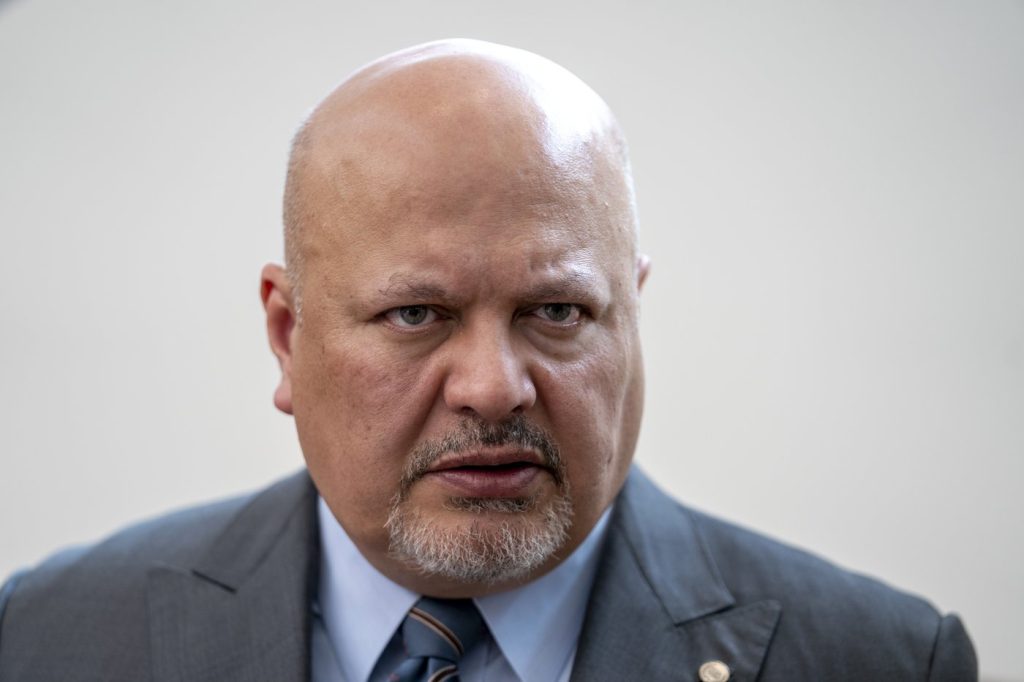THE HAGUE, Netherlands (AP) – The International Criminal Court (ICC) is currently facing significant operational hurdles following sanctions imposed by former U.S. President Donald Trump on its chief prosecutor, Karim Khan. As of February, Khan has lost access to his email, and his bank accounts in the United Kingdom have been frozen. The court's American staff members have been cautioned that traveling to the United States may result in arrest, complicating the functioning of the ICC.
Various non-governmental organizations (NGOs) have either ceased collaboration with the ICC or have become unresponsive to communications from court officials due to these sanctions. Liz Evenson, international justice director at Human Rights Watch, remarked that these sanctions obstruct victims' access to justice, highlighting the repercussions on ongoing ICC investigations and overall functionality.
The sanctions were enacted shortly after ICC judges issued arrest warrants in November 2023 for Israeli Prime Minister Benjamin Netanyahu and former Defense Minister Yoav Gallant, alleging potential war crimes related to their military actions during conflicts with Hamas in Gaza. Israeli officials have denied these accusations, claiming that their military operations were justified.
Since the imposition of these sanctions, ICC staff and allies have expressed grave concerns over their ability to pursue justice for victims of war crimes and genocide. The sanctions have not only targeted Khan but also prohibit other non-American ICC staff from entering the U.S. and threaten fines and imprisonment for any support provided to Khan.
The impact has been immediate, with investigations into various atrocities stalling, including ongoing probes into genocide allegations against former Sudanese President Omar al-Bashir. Eric Iverson, one of the ICC's prosecutors, has filed a federal lawsuit against the Trump administration seeking relief from the sanctions, arguing they hinder fundamental legal functions necessary for prosecuting war crimes.
American staff, such as Iverson, face the dilemma of visiting their families, with warnings from ICC attorneys about potential arrest upon re-entry to the U.S. Although six senior officials have departed the court over these sanctions, the ICC remains heavily reliant on contractors and NGOs for its operations. This dependency has led many of these entities to withdraw support due to fears of repercussions from U.S. authorities.
Even major corporations like Microsoft have severed links, canceling Khan's corporate email account and forcing him to use a Swiss email provider instead. Reports indicate that organizations previously involved with the ICC have moved funds from U.S. bank accounts to avoid potential seizures by the administration. A senior staff member from one NGO relayed that employees have stopped responding to ICC emails entirely due to fears of triggering a negative response from U.S. officials.
The cumulative effect of these actions has led to uncertainty regarding the ICC's viability during Trump’s presidency. Internal discussions among staff reveal a lack of confidence that the court can weather the turmoil brought about by the current U.S. administration. Trump characterized the ICC's actions as "illegitimate and baseless," asserting that they compromise U.S. personnel and undermine national security.
Despite previously experiencing tension with the ICC, Trump's sanctions represent a new level of hostility, harking back to earlier sanctions imposed on Khan's predecessor, Fatou Bensouda, over an investigation in Afghanistan. While President Joe Biden rescinded those sanctions, the current situation presents fresh challenges. Several lawsuits are in progress, with some seeking to combat the restrictions on U.S. staff at the ICC.
Amid these struggles, the court is losing support from states that traditionally uphold its mission. The ICC’s effectiveness is hampered by its lack of enforcement power, typically relying on member states to execute warrants. Alarmingly, three countries, including two from the European Union, have recently declined to implement ICC directives, adding to the organization's current crises.
Furthermore, the ICC is grappling with internal issues, including allegations against Khan involving misconduct towards a female staffer. Khan has denied these claims, and a United Nations investigation is ongoing. Consequently, the ICC faces external hostility and internal strife, putting its future into question as it navigates this challenging political landscape.











